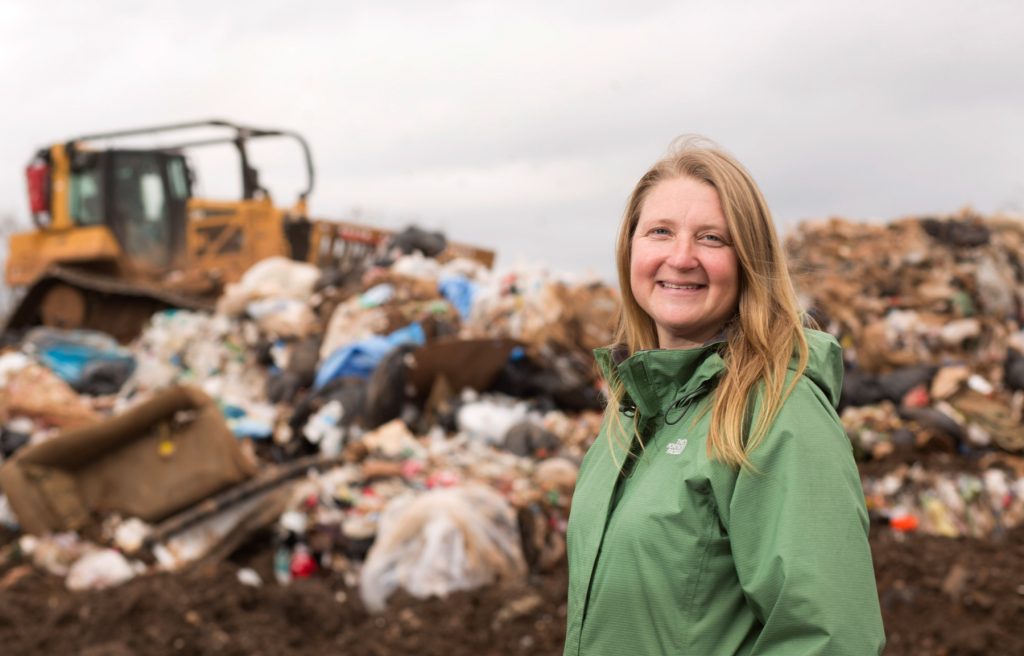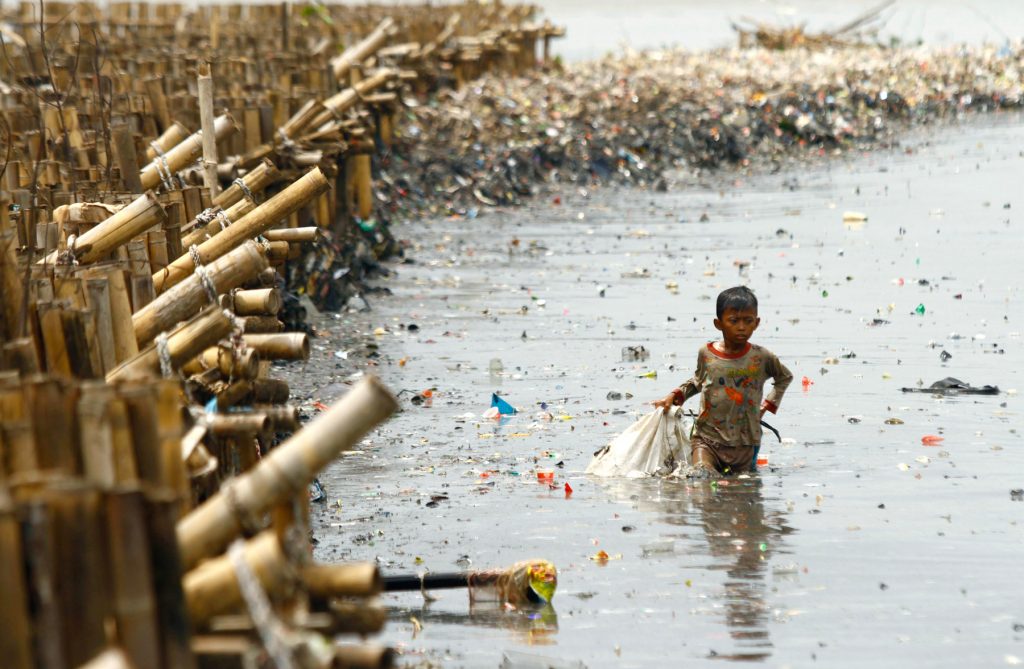Managing waste — specifically plastic — so that it doesn’t end up in our oceans is a worldwide challenge.
The State Department is sending Jenna Jambeck — one of the foremost authorities on global waste and its causes — to the Philippines, Indonesia and Japan to share ideas on reducing the amount of plastic that finds its way into the sea.
In a 2015 study, Jambeck’s team estimated that 8 million tons of trash is deposited in the oceans each year — enough to fill 15 shopping bags for every meter of coastline on the planet.
Removing the trash that’s in the oceans without addressing the waste management practices that put it there is “like mopping the floor when your bathtub is overflowing and the tap’s still on,” Jambeck said. Her work in waste management is an attempt to turn off the tap.
The majority of waste in our oceans is consumer plastic, with the biggest culprits being food wrappers, beverage bottles and caps, plastic bags and cigarette butts (the filters of which are cellulose acetate, a plastic). When sun and salt water break down the plastic, it becomes microplastic that is consumed by sea creatures and enters the food chain.

Jenna Jambeck (Courtesy photo)
Jambeck looks forward to learning from the countries she will visit. She noted that Japan has very low per-capita waste generation.
“I’m interested in seeing their system. And the other countries I’m visiting have really cool zero-waste projects,” she said. “Indonesia’s done some amazing canal cleanup and rehabilitation projects. Each place is doing some really proactive things that are different and outside of what we’re doing in the U.S.”
How to reduce plastic?
Everyone can play a part. Jambeck recommends that you:
- Avoid water in plastic bottles if you have access to a source of clean drinking water.
- Avoid plastic drinking straws and other single-use plastics.
- Take a reusable bag with you when shopping.
- Choose reuseable bottles over biodegradable bottles, most of which only degrade in industrial compost settings.
- Pick up litter when you are outside. Uncontained trash on land often ends up in the ocean.
“Because population density is a driver on this issue,” said Jambeck, “these choices, taken collectively, absolutely make a difference.”

A child collects valuable goods from the garbage in the sea at a fishing village in Jakarta, Indonesia. (© Solo Imaji/Barcroft Media via Getty Images)







COMMENTS14
article in the topic of Clear plastic trash from the sea. in now a days the pollution level of sea growing day by day. I appreciate the recommendation given by Dr. Jean Bbc. we need to follow the steps. garbage dump is one of the major problem. we need to looking in it and it is time to take some strict action
plastics is desirable because it avoids their accumulation in landfills.
Thank you such a lot for such a tremendous article on environmental pollution. Recycling is unquestionably very very encouraged because it stops landfills from being overloaded with gunk and garbage. We must learn from Japan, the land of Anime, Environment and Low Pollution.
Very foreboding and quite informative. I really love what is published in the aforementioned article. I hope things turn okay for all of us. I was recently reading this article on 90’s anime and it was awesome too.
We must try our best to conserve our environment. Glad that people like you exist!!
Thank you so much for such an amazing article on environmental pollution. Recycling is surely very very encouraged as it stops landfills from being overloaded with gunk and garbage. We must learn from Japan, the land of Anime, Environment and Low Pollution.
Thank you for such a nice article keep posting, I am a Regular Visitor of your website.
pgpsm full form
Thanks for Share us a Valuable Article Plastic srap and Save Environment. Smutne
we need to follow the steps. garbage dump is one of the major problem. we need to looking in it and it is time to take some strict action .
Nowadays the pollution level of sea growing Leap and Bound. In This Situation, I Honestly appreciate the guidance given by Dr. Jean Bbc. Thanks for Share us a Valuable Article of Clear plastic trash from the sea and Save our Environment. We need to follow the steps. Recycling of plastics is excellent because it avoids their growth in landfills. Currently, the garbage hole is one of the major problems in this world. We need to look at it and it is time to take some strict action as soon as possible to save our world from disasters.
Thank u for such a nice article in the topic of Clear plastic trash from the sea. While plastics configure only about 8 percent by weight or 20 percent by volume of municipal solid waste.
Thank u for such a nice article in the topic of Clear plastic trash from the sea. in now a days the pollution level of sea growing day by day. I appreciate the recommendation given by Dr. Jean Bbc. we need to follow the steps. garbage dump is one of the major problem. we need to looking in it and it is time to take some strict action .
这是一篇很棒的文章,我回过头来读了一篇文章。 它真的帮助了我。非常感谢你这篇伟大的文章。
Thanks for Share us a Valuable Article Plastic srap and Save Environment.
Recycling of plastics is desirable because it avoids their accumulation in landfills. While plastics constitute only about 8 percent by weight or 20 percent by volume of municipal solid waste, their low density and slowness to decompose makes them a visible pollutant of public concern.
LEAVE A COMMENT
TOP